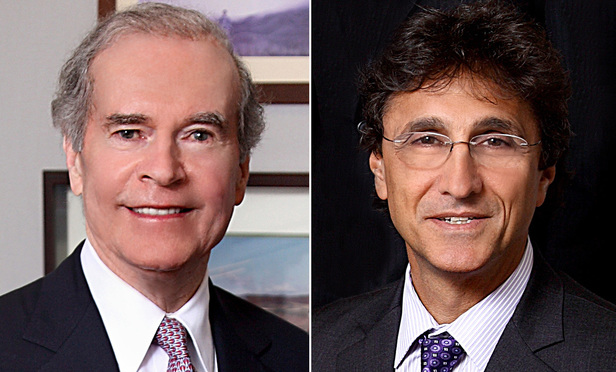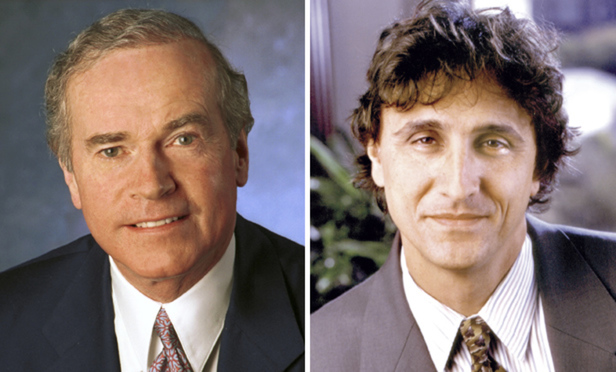Moore

August 22, 2016 | New York Law Journal
Late Notices of Claim on Behalf of InfantsIn their Medical Malpractice column, Thomas A. Moore and Matthew Gaier examine two Court of Appeals decisions affirming the denial of motions for late notices of claim on behalf of infants allegedly injured as a result of malpractice around the time of their birth.
By Thomas A. Moore and Matthew Gaier
27 minute read

July 05, 2016 | Daily Report Online
Blowing the Whistle on the 'Lincoln Law'With recent legislative efforts to expand whistleblower rights and protections, many businesses have been thrust into the unfamiliar territory accompanying whistleblower reports, complaints and lawsuits. Because knowledge is essential in handling claims of this nature, an understanding and familiarity of the False Claims Act is vital for all in-house counsel. This overview of the False Claims Act highlights important information concerning these types of cases for in-house counsel.
By Michael J. Moore
12 minute read

June 07, 2016 | New York Law Journal
Second Circuit Decision on Damages With Broad RamificationsIn their Medical Malpractice column, Thomas A. Moore and Matthew Gaier write: The Second Circuit recently issued a particularly noteworthy opinion addressing damages in an action involving malpractice at a VA medical center. That decision has important ramifications for cases stemming from care rendered at VA facilities, but also has portentous implications for damages-related issues in other federal and state malpractice actions.
By Thomas A. Moore and Matthew Gaier
15 minute read

April 05, 2016 | New York Law Journal
New York State Medical Indemnity Fund ExperienceIn their Medical Malpractice column, Thomas A. Moore and Matthew Gaier examine the impact of the New York State Medical Indemnity Fund, established five years ago, and make suggestions for improving its effectiveness and its ability to serve the injured children for whom it was established.
By Thomas A. Moore and Matthew Gaier
38 minute read

February 02, 2016 | New York Law Journal
Recent Court of Appeals Decision on Duty to Non-PatientsIn their Medical Malpractice column, Thomas A. Moore and Matthew Gaier write that in a 1988 decision holding medical professionals not liable for a car accident involving a patient, the Court of Appeals expressly left open the possibility that it might recognize a duty of care in a circumstance where the health-care provider administered or prescribed medication that affirmatively created an impaired driving condition and failed to warn the patient.
By Thomas A. Moore and Matthew Gaier
13 minute read

December 10, 2015 | Texas Lawyer
Employers Should Brace for Salary Level Test ChangesRather than focusing on predictions, employers should proceed with proper preparation and planning.
By Kimberly S. Moore
4 minute read

December 10, 2015 | Texas Lawyer
Employers Should Brace for Salary Level Test ChangesRather than focusing on predictions, employers should proceed with proper preparation and planning.
By Kimberly S. Moore
4 minute read

December 01, 2015 | New York Law Journal
Further Clarification of Summary Judgment StandardIn their Medical Malpractice column, Thomas A. Moore and Matthew Gaier, discuss the "judicial drift" that led to a rule that a moving defendant could establish entitlement to summary judgment by submitting evidence only that there was no departure from accepted practice, ignoring causation, and that in order to defeat the motion, the plaintiff would have to prove both departures and causation—a rule that has not yet been universally overturned.
By Thomas A. Moore and Matthew Gaier
13 minute read

November 30, 2015 | New York Law Journal
Further Clarification of Summary Judgment StandardIn their Medical Malpractice column, Thomas A. Moore and Matthew Gaier, discuss the "judicial drift" that led to a rule that a moving defendant could establish entitlement to summary judgment by submitting evidence only that there was no departure from accepted practice, ignoring causation, and that in order to defeat the motion, the plaintiff would have to prove both departures and causation—a rule that has not yet been universally overturned.
By Thomas A. Moore and Matthew Gaier
13 minute read

October 06, 2015 | New York Law Journal
Physician Liability From Collaborative ArrangementsIn their Medical Malpractice column, Thomas A. Moore and Matthew Gaier write: As the practice of medicine and the provision of health care continue to evolve, it has become increasingly common that diagnosis, care and treatment are provided by other health-care professionals, such as nurse practitioners and midwives, who are required to collaborate with physicians. But that collaboration can lead to liability for physicians who fail to provide proper supervision or oversight.
By Thomas A. Moore and Matthew Gaier
14 minute read
Trending Stories
- 13 Incidents Lead to Charges Against the Alexander Brothers; Cousin Remains at Large
- 2Sidley Austin Elects Biggest Combined Class of Partners and Counsel in Firm History
- 3High Court Drops Case Over Nvidia's Effort to Ditch Fraud Suit
- 4Commentary: Law, Literature and Revenge
- 5Attorneys, Professors Share Support for Chancellor Following Musk's Online Attacks
More from ALM
- Legal Speak at General Counsel Conference East 2024: Match Group's Katie Dugan & Herrick's Carol Goodman 1 minute read
- Legal Speak at General Counsel Conference East 2024: Eric Wall, Executive VP, Syllo 1 minute read
- Legal Speak at General Counsel Conference East 2024: Virginia Griffith, Director of Business Development at OutsideGC 1 minute read



